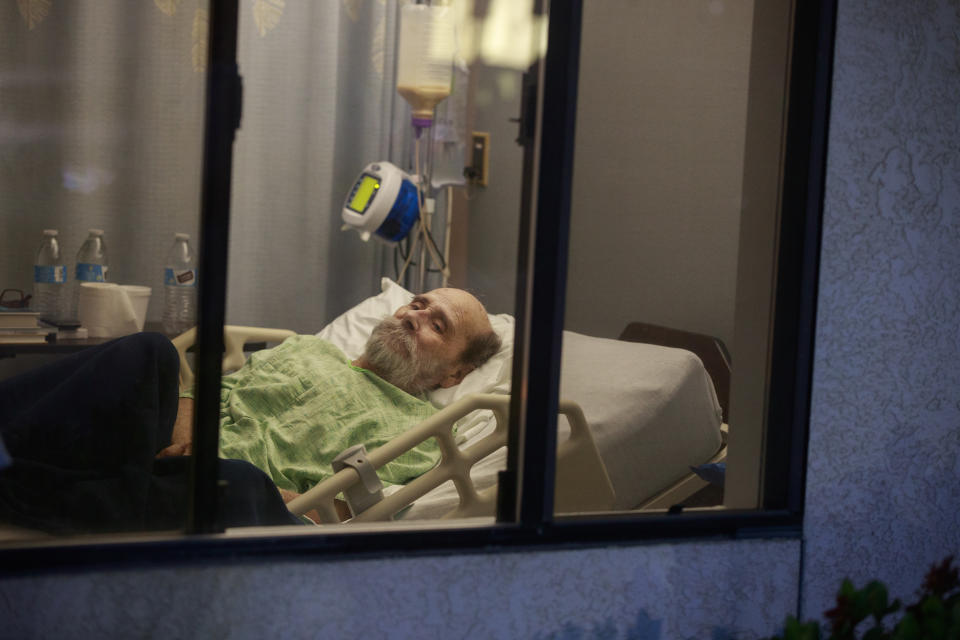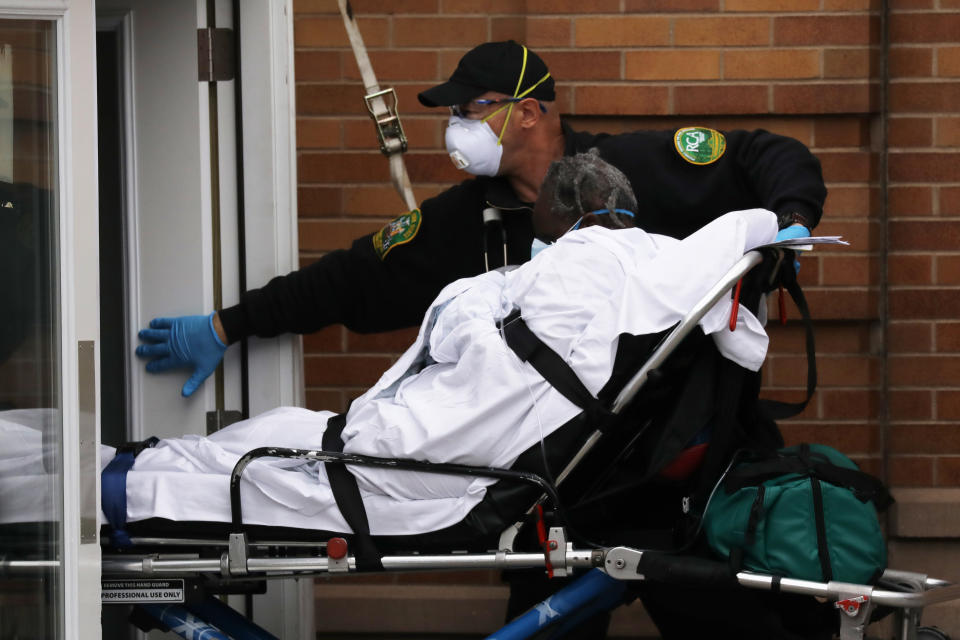Coronavirus expert: 'We've not encountered a virus quite like this'
The coronavirus pandemic has upended normal life across the world.
There are over 1 million cases of COVID-19 in the U.S., which is the global leader in case count. Worldwide, there are over 3 million cases. And for many doctors, the coronavirus and its impacts are like nothing they’ve ever seen before.
“I’ve been studying viruses since 1978,” Dr. James Hildreth, Meharry Medical College CEO and an infectious disease expert based out of Nashville, told Yahoo Finance’s On the Move this week (video above). “And I think it’s fair to say we’ve not encountered a virus quite like this, just because of the broad range of tissue types in our body it infects.”

The coronavirus creates the infection known as COVID-19. The virus spreads through viral droplets from a cough or sneeze, which can travel into someone else’s mouth, nose, or eyes. From there, according to WebMD, it travels through the nasal passage to the mucous membranes in your throat and latches on.
Within two to 14 days, a person can start showing symptoms, which include fever, cough, chills, fatigue, and shortness of breath. As the virus moves through the respiratory tract, it can inflame the lungs, causing breathing difficulties and leading to pneumonia.
“So anyone who has a compromised immune system, or their lungs are compromised in any way, they’re going to have really poor outcomes,” Hildreth explained.

‘Really severe lung disease’
The CDC has stated that those over the age of 65 and those with underlying health conditions are most at risk for severe illness from COVID-19.
The people with underlying health conditions at risk can be of any age. Those with asthma, chronic lung disease, heart conditions, obesity, diabetes, liver disease, kidney disease, and those who are otherwise immunocompromised are especially vulnerable.

“It shuts down kidneys,” Hildreth said. “As you’ve heard, it’s starting to cause blood clots in young people in their 30s and 40s who are dying of strokes. It causes really severe lung disease. And it also triggers something called a cytokine storm, in which the immune system gets over exuberant and begins to destroy not just the virus, but the tissues around the virus.”
Blood clotting is a newer complication that doctors have noticed in COVID-19 patients. A 41-year-old Broadway actor named Nick Cordero, who has been in a medically-induced coma for over a month because of the virus, had his leg amputated after developing a clot.

“We do need to find something that can slow the virus down until we have a vaccine,” Hildreth said. “But it’s fair to say that of all the viruses that I’m aware that I’ve studied or been involved with, this one is very different, just in terms of the huge range of things that it does to the body.”
“It really is an extraordinary challenge, and like none we’ve seen before,” he added. “But I’m really heartened by the fact that scientists all over the world have focused their attention on it. And so, I’m confident that we’re going to find some solutions in the coming months.”
Adriana is a reporter and editor for Yahoo Finance. Follow her on Twitter @adrianambells.
READ MORE:
Health officials propose paying Americans $50 a day to self-isolate
Coronavirus response: 'Someone has to pay' for the rising U.S. health care costs
Over 9 million Americans lost health insurance amid coronavirus pandemic, analysis finds
Read the latest financial and business news from Yahoo Finance
Follow Yahoo Finance on Twitter, Facebook, Instagram, Flipboard, SmartNews, LinkedIn, YouTube, and reddit.
